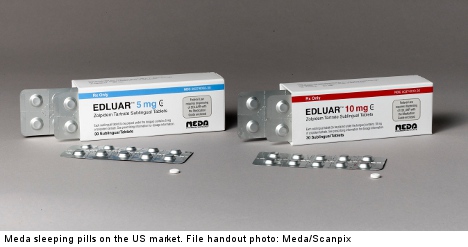The US newspaper, citing anonymous sources, said Mumbai-based generic drug manufacturer Sun Pharma was in talks with banks to finance the deal. Sun Pharma, India’s biggest pharmaceutical group by market capitalization, with annual sales of more than $2 billion, is run and controlled by founder Dilip Shanghvi.
Meda, also a maker of branded generic prescription and over-the-counter drugs, is based in Stockholm and is listed on the Swedish stock exchange.
“Meda has a market value of roughly 25 billion kronor in Stockholm, meaning that with a typical takeover premium of 25 percent to 30 percent, it could be worth between $4.5 billion and $5 billion,” the Wall Street Journal said.
Analysts say Meda, one of Sweden’s largest pharmaceutical firms, is a desirable addition for any drugs company seeking to increase its pipeline of medicines in development.
Shares of Sun Pharma, which has a market capitalization of nearly $20 billion, the highest of all Indian generics firms, closed down 2.54 percent at 1,045.5 rupees on Friday.
“We have no comment on media conjecture,” a Sun spokeswoman said.
Sun Pharma reported earlier in the week a 23.4 percent rise in quarterly net profit to 10.12 billion rupees, beating market estimates.
It took the company 27 years to cross the $1 billion mark but another 36 months to cross $2 billion, which it did in the last financial year.
Sun Pharma is among the most profitable drug companies in the world and its stock has gained over 35 percent so far in the year since January. Sun Pharma last year acquired URL Pharma and DUSA Pharmaceuticals, both based in the United States. Its main US generics subsidiary is Caraco Pharmaceuticals, which is based in Detroit.
There has been media speculation that Sun Pharma may seek to strengthen its corporate portfolio with another high-profile acquisition. Sun’s founder Shanghvi said this week that the company, which already derives nearly three-quarters of its revenues from abroad, was focused on boosting its international presence.
Shanghvi founded Sun 30 years ago as a maker of psychiatric drugs.
AFP/The Local/at



 Please whitelist us to continue reading.
Please whitelist us to continue reading.
Member comments